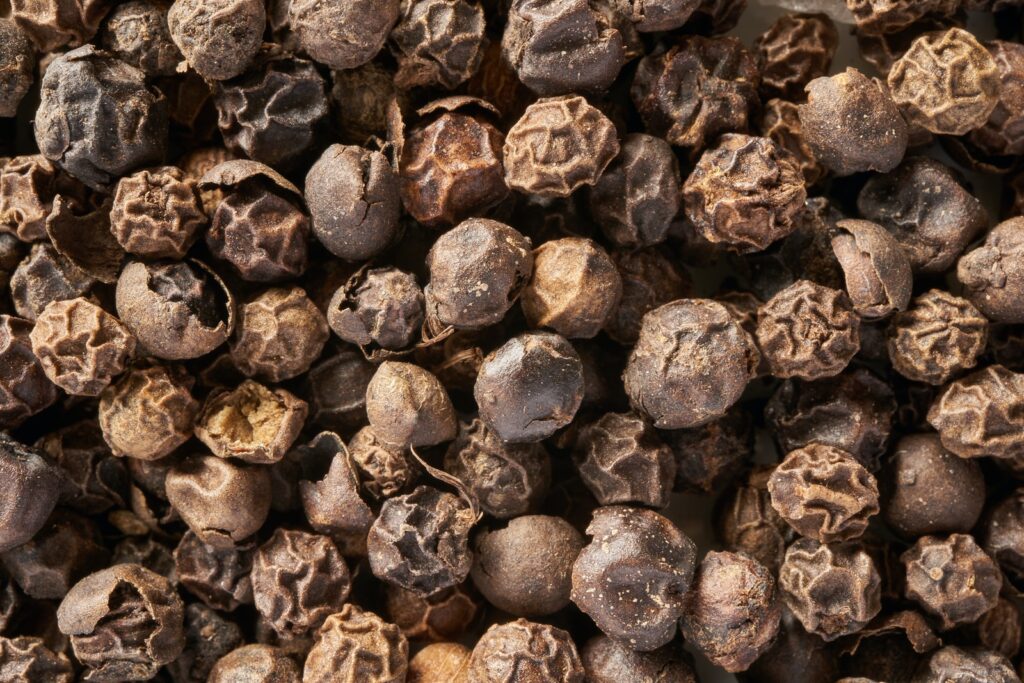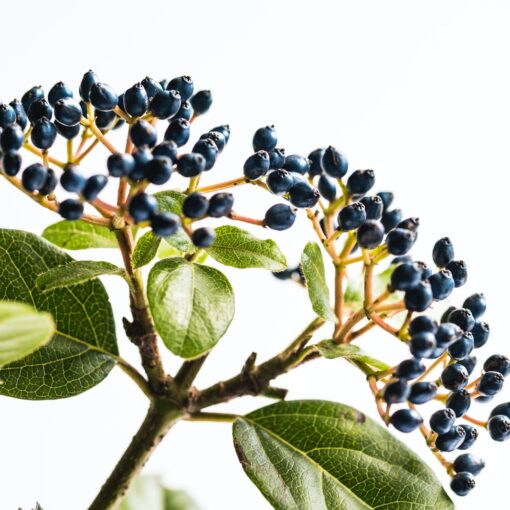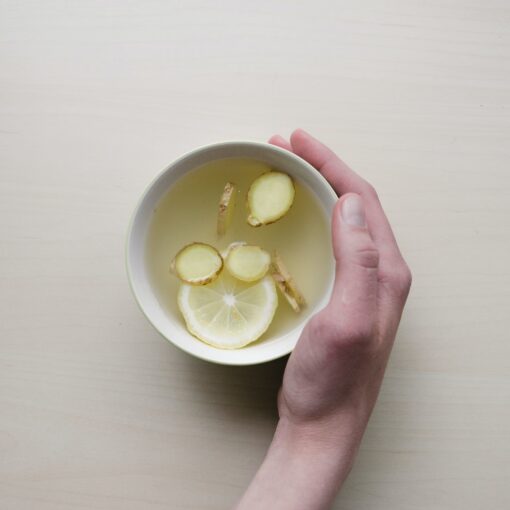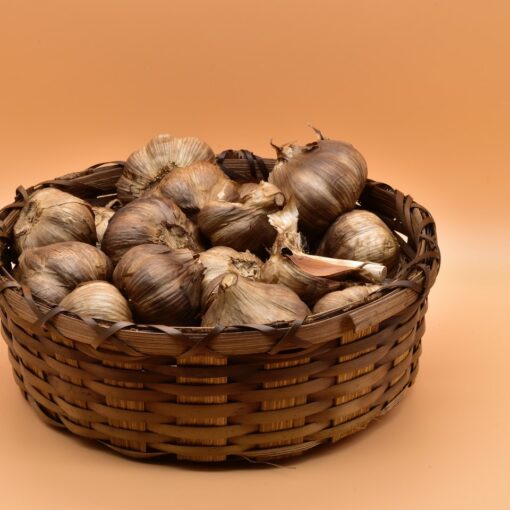Page Menu
Think of a future where black pepper isn't only a spice that makes your meal taste better, but also a secret weapon against oxidative stress and inflammation.
Yes, that's true! Black pepper extract comes from the small, inconspicuous peppercorns that grow on the branches of the black pepper plant. It has been used in traditional medicine for a long time. People have used it to treat everything from annoying aches to long-term inflammation.
Key Concepts and Top Takeaways
Please Note: This post may contain affiliate links. If you click one of them, we may receive a commission at no extra cost to you. As an Amazon Associate, I earn from qualifying purchases.
– Incorporate black pepper extract into meals for added health benefits.
– Use it to enhance the absorption of nutrients from food.
– Consider its anti-inflammatory properties for joint health.
– Add black pepper to smoothies or juices for a nutritional boost.
– Explore supplements if dietary intake is insufficient.
– Monitor portion sizes to avoid digestive discomfort.
– Combine with turmeric for enhanced antioxidant effects.
– Stay hydrated to support pancreatic function and digestion.
– Consult a healthcare professional before starting any new supplement.
– Maintain a balanced diet alongside black pepper for optimal results.

But that's not all! Recent studies have shown that this simple spice can potentially be an unexpected ally in the fight against obesity. Black pepper extract can help stop fat from being absorbed and even make the pancreas healthier. Who knew that adding seasoning to your food could have such benefits?
Piperine, the chemical that gives black pepper its unique taste and some really great health benefits, is what makes this work. Researchers have found that black pepper extract can fight pro-inflammatory enzymes like cyclooxygenase-2 (COX-2) and inducible nitric oxide synthase (iNOS). It's like a superhero of food swooping in to save your pancreas and raise your antioxidant levels—glutathione and superoxide dismutase are cheering you on!
And don't forget about the science! A new study in the Journal of Medicinal Food showed that black pepper extract doesn't just sit on the spice rack; it actually protects pancreatic cells from oxidative stress and inflammation. Sorry, little guys, but it was also demonstrated to lower fat buildup in the pancreas in tests with rats.
If you want to add some flavor to your meals and maybe even lose a few pounds, adding black pepper to your plate might be the easiest alteration you can make to your diet. Who would have thought that a little black pepper could be so strong?
Black Pepper Extract Products – Compare Lowest Prices at Amazon
Black Pepper Extract as a Fat Blocker
Black pepper extract is like a tiny black superhero in the spice world that rushes in to save the day. This supplement isn't just for giving your food a little kick; it's also on a mission to lower your blood pressure and cholesterol levels. It's officially called Piper nigrum extract (because who doesn't enjoy a fancy name?). But hold on, there's more! This little powerhouse has been in the news a lot lately because it can fight off obesity and weight growth so well. It can even get rid of liver fat like a pro.
In a unique twist, researchers opted to put individuals against each other in a good old-fashioned battle: one group got a placebo, while the other indulged in black pepper extract. Spoiler alert: the pepper warriors didn't just win; they almost knocked fat storage out of the park—by up to 73%! This is a comeback tale that might be made into a movie!
But how does this amazing spice do these things? It works by ignoring the absorption of fat. By inhibiting the body’s capacity to absorb fats from food, it not only helps keep those troublesome pounds at bay but also amps up your metabolism. It's like nature saying “No, thank you!” to extra calories.
People have been using black pepper extract for hundreds of years to treat many kinds of problems. But in today's health-conscious society, it's becoming known as a trustworthy fat blocker. The new study that came out in Nutrition and Metabolism merely adds to the fire.
People who added this miracle extract to their routines said they not only had a smaller waistline, but they also lost weight and body fat compared to people who took a placebo. You can have your cake and eat it too, but in this case, you're giving up the cake and choosing a healthier way of life.
And let’s not forget, black pepper extract plays nicely with other pharmaceuticals, making it a safe addition to your wellness arsenal. So if you’re seeking for a natural sidekick in your quest for weight management, this little black jewel might well be your new best friend—just don’t forget to ask it to dinner!
Black Pepper Extract as a Natural Anti-Inflammatory
For a long time, people have praised black pepper extract as a natural way to fight inflammation. It's time to give this simple spice the respect it deserves. Capsaicin is the star of the show here. It not only gives your food a fiery taste, but it also works hard to keep inflammation at bay by stopping those pesky enzymes that love to cause problems in our systems. Some studies have even shown that capsaicin can be just as good as ibuprofen in reducing inflammation. Who knew your dinner table could also be a pharmacy?
Researchers in the lab have found that this powerful extract not only stops inflammatory enzymes from working, but it also stops the body from making inflammatory mediators. If you have arthritis, inflammatory bowel disease, or asthma, black pepper can be the spice you need to add to your life. It's like adding a superhero to your health toolkit. Let's be honest, who wouldn't want a spice that can help with so many inflammatory problems?
Black pepper extract is better than a Michelin-star chef's kitchen when it comes to intestinal health. It doesn't stop there; it also helps reduce inflammation in joints and other places. So, the next time you reach for the salt shaker, think about switching it out for black pepper. Not only will your food taste better, but your body might thank you later!
Black Pepper Extract as a Powerful Antioxidant
Oh, black peppercorns! Those small balls that can make your boring dinner taste better. They not only make your food taste better, but they are also full with antioxidants. That's right! These little spice fighters are like small superheroes fighting off the bad free radicals that want to hurt our cells. A study in Food Chemistry even showed that black pepper extract is a powerful substance that can fight inflammation and has strong antioxidant properties.
Let's not take this simple spice for granted. People call black pepper extract “BPX,” and it's like that underdog in a sports movie who ends up saving the day. BPX has been used in traditional Chinese medicine for more than 2,000 years, and it's not just there for fun; it has some very real health benefits. It has been demonstrated to help lessen inflammation, which is just a fancy way of saying that it might lower your risk of getting diseases like cancer. Who knew that adding a little of this spice to your food could help you avoid such serious problems?
But hold on, there's more! BPX doesn't just reduce inflammation; it also helps blood flow and gives your heart a little extra energy. Think about how your heart would do a happy dance every time you ate something with black pepper on it. That is something to see!
How about we discuss about antioxidants in general? There are a lot of them in the food market, but black pepper extract is gradually becoming more popular. It's like the rising star at a packed concert—everyone is starting to see how strong and helpful it can be. Don't forget about those black peppercorns the next time you're at the spice rack. They might be the secret to better health and keeping those annoying free radicals away!
Black Pepper Extract Supports the Pancreas
Black pepper extract, which comes from the little, dried peppercorns that give your favorite recipes a kick, has been garnering a lot of attention lately for how well it supports the pancreas. Who would have thought that something so small could be so strong? Studies show that this extract not only helps people with diabetes keep their blood sugar levels stable, but it also increases the amount of insulin they make. What a multitasker! Also, it has been shown to have anti-inflammatory effects that are great for the pancreas, making it a great partner in the fight against inflammation.
Studies have showed that black pepper extract might even protect against pancreatic cancer, which is a startling turn of events. Imagine that—a common kitchen item that could keep you from getting very sick! A study published in Phytomedicine found that giving black pepper extract to diabetic rats made their pancreas work much better. These little peppercorns don't simply make food taste better; they're like microscopic superheroes combating oxidative stress and inflammation.
So, the next time you put black pepper on your salad or spaghetti, think about how you might be helping your pancreas. This extract has antioxidant and anti-inflammatory properties that could make a big difference in keeping the pancreas healthy. Who would have guessed that a spice we use all the time might be so important for our health? Black pepper seems to say, “I'm not just here to make your food taste better; I'm also here to make your pancreas happy!”
What Are the Side Effects of Black Pepper Extract?
You might not have known that black pepper extract could be the secret ingredient you need in the kitchen. It can make your favorite food taste better, but it also has a sneaky side that can make your stomach hurt, make you dizzy, and make your heart race like it's trying out for a marathon. A lot of people can sprinkle it on without a second thought, however pregnant women and people with allergies should probably stay away from this spicy extract.
The dried berries of the Piper nigrum plant are what pepper comes from. It has been a common condiment for thousands of years. When we talk about black pepper extract, we're talking about a concentrated form of this popular spice that people use not just to make food taste better but also as a natural medicine for a variety of health issues. But let's be honest: with tremendous power comes great responsibility, and that includes a possible list of adverse effects that could make you rethink your relationship with this hot liquid. Imagine having scorching feelings that make it feel like your mouth is hosting a campfire, or having trouble breathing that could make you feel like you're going to panic.
And while you're enjoying that spicy kick in your food or drink, be careful—heartburn, indigestion, and even a surprising case of diarrhea could ruin the fun. Plus, there's a chance that your skin could get irritated or that you'll have an allergic reaction that makes you look like a walking warning sign. Also, if you're taking other medications, it's a good idea to talk to your doctor before you get into the spicy side of life. After all, no one likes to have to go to the doctor because of something they ate!
Is Black Pepper Extract the Same as Black Pepper?
Black pepper is a spice that goes into almost every dish we make, but let's clear up a common misconception: black pepper extract and your trusty pepper shaker are not the same thing. Black pepper extract is like the superhero version of black pepper. It has a stronger flavor and more health advantages than conventional black pepper.
The Piper nigrum plant's fruit is where this extract comes from. It is made by squeezing out the oils from the berries. This strong potion can be found in a wide range of foods, from sweets to spicy dishes. There are many kinds of pepper, but black pepper is by far the most popular among people who like spices. It also comes in several forms, like tablets, capsules, liquids, powders, and oils. There is a black pepper product for every cooking necessity!
This is where it gets interesting: the berries are used to make black pepper extract, and the black pepper we put on our food is really the dried seed. This extract has a lot more piperine, the fiery element that gives black pepper its unique kick. Piperine not only makes food taste better, but it has also been connected to some pretty amazing health benefits, such as decreasing inflammation and helping your body absorb nutrients like a sponge. So the next time you reach for the pepper grinder, remember that you might be losing out on the extra health benefits of black pepper extract!
What Does Black Pepper Extract Do for Turmeric?
In India and other places, turmeric, the bright yellow spice that makes curry so good, has been loved for a long time. It looks good, but it's also good for your health in many ways, like fighting inflammation. But hold on, there's more! Black pepper extract is turmeric's partner in the superhero story of health. Black pepper and turmeric work together like Batman and Robin, with black pepper making turmeric work much better.
So, what does black pepper do to make things happen? First of all, it might help keep inflammation from happening, like a bouncer at a club keeping out those who shouldn't be there. It might also improve blood flow and immunity, which makes it an essential part of your health toolkit. For a long time, traditional medicine has said that black pepper can help with all kinds of health problems. And you know what? Science has gotten in on the action and found that black pepper extract contains antioxidant capabilities that can offer your cells a much-needed boost.
Turmeric and black pepper extract are two supplements that regularly get a lot of attention. They're like the famous pair in the supplement world, each with their own style. But what's going on with their partnership? According to one idea, black pepper helps our bodies take up curcumin, the amazing ingredient in turmeric that gives us all those health benefits. When it comes to absorption, curcumin is a bit of a diva and doesn't get along with others. But when you add black pepper, it's like curcumin finally gets to sit at the cool kids' table.
Some people think that black pepper makes turmeric more bioavailable, which means that our bodies can get more of its advantages. So, if you want to make your health routine more interesting, try combining turmeric with its reliable partner black pepper. Who would have thought they would be such a good match?
Is Black Pepper Anti-Inflammatory?
Picture this: you're in the kitchen, surrounded by a mix of spices, and there it is—the simple black pepper, which is sometimes overshadowed by its flashier cousins like saffron or chili flakes. But don't get too excited yet; new study has brought this inconspicuous spice into the spotlight and suggested that it might be able to fight inflammation. We need to do more research to back up this spicy claim, but if you have arthritis, chronic pain, or even asthma, it might be time to let black pepper help you stay healthy.
Let's be honest now. Black pepper is the unsung hero of salt and pepper shakers. It is used in many different kinds of food around the world. Some people swear by its ability to reduce inflammation, while others just use it to make their boring meals more interesting. The scientific community seems to be playing a game of “will they or won't they,” with studies on both sides of the issue.
It's interesting that black pepper has been praised in traditional medicine for a long time. It's like the wise old sage in your spice cabinet. It's full of antioxidants and is said to help with pain. A new study in Nutrition looked at lab mice and found that black pepper extract might help stop inflammation by stopping those annoying inflammatory chemicals in their tracks. Researchers are excited about the possibilities, and they say this could lead to new anti-inflammatory drugs. But before we start putting black pepper on everything like it's confetti at a parade, let's remember that we need further studies to find out if people can get the same benefits.
Also, don't forget that black pepper has been linked to better heart health and even reduce blood sugar levels. Doesn't that sound like a miraculous spice? It's hard to say if adding a little black pepper to your diet would make you feel like a superhero or just give your food a little extra flavor until we have more certain answers. You can shake it on your food, but don't expect too much from it!
Does Black Pepper Affect Blood Pressure?
Let's talk about black pepper, a spice that is like a superhero in the kitchen and might also be a blood pressure regulator. Imagine this: you sprinkle some of that fragrant sweetness on your meal. Not only does it make it taste better, but it might also help lower your blood pressure.
There is some interesting research out there that black pepper can help keep those annoying numbers in check. In one study, people who added this spicy sauce to their food had their systolic blood pressure drop by roughly 5 points and their diastolic blood pressure drop by 3 points. Not a terribly exciting rescue scene, but every little bit helps, right?
Piperine, the chemical that gives black pepper its kick, is the secret agent underlying this possible benefit. This little guy seems to be able to stop your body from making additional fat cells, which is like saying, “No thanks, I'm full!” And let's be honest: having fewer fat cells could mean a waistline that is easier to handle and lower blood pressure! Black pepper is also full of antioxidants, which are those wonderful little molecules that protect against high blood pressure like a knight in shining armor.
Before we all start putting black pepper on everything, let's be clear: we still need to do more research to completely understand how this spice works. Some research suggest that consuming black pepper extract for a few weeks may lower blood pressure a little. Some people say that adding it to the diets of those with high blood pressure might have the same effect. The suspense is real, like playing “will it or won't it.”
But here's the catch: adding black pepper to your food might seem delicious (who doesn't enjoy a good curry?), but we're still not sure if it's safe for people who already have high blood pressure to start taking supplements. If you're thinking about changing your spice rack into a medicine cabinet, wait a little longer. While we wait for additional research, let's enjoy our cooking adventures with black pepper in the meantime!
How Long Does It Take Turmeric and Black Pepper to Work?
For a long time, turmeric and black pepper have been the spice world's power couple, showing off their skills in both kitchens and traditional medicine. They are like Batman and Robin for health advantages, but without the capes. They are very powerful, though. Now, here's the big question: how long does it take for these two food superheroes to work? You might have believed you could just set a timer and relax, but you were wrong! Some studies say that turmeric might start to act in approximately 30 minutes, while others say it might take two hours. It's a bit of a risk because, let's be honest, our bodies are all like small ecosystems that react differently to these amazing spices.
Black pepper is more than just a spice to put on spaghetti; it's also good for your health. It has a lot of antioxidants, which makes it a secret weapon for healthier digestion. And those anti-inflammatory properties? Great job! Turmeric, on the other hand, has been used in traditional medicine for hundreds of years. That's a long time! This bright spice is full of antioxidants and has its own anti-inflammatory and antibacterial properties.
When you put these spices together, they make a health-boosting powerhouse. Both have a lot of antioxidants and anti-inflammatory characteristics, but black pepper also has antibacterial capabilities, while turmeric is said to be the best at fighting cancer. So the next time you cook, think about adding these two winners to your supper. Not only will they make it taste better, but they might also be good for your health. Who would have thought that a little spice could signify so much more than just flavor?
What Medications Should Not Be Taken with Turmeric?
Everyone is talking about turmeric, that golden spice that is like a superstar in Indian kitchens and has been used as a medicine for a long time. The big question is: what medicines should you avoid while enjoying its bright flavor? Imagine you're making a tasty curry and suddenly you have to decide whether to mix drugs and spices. Spoiler alert: not every time is a match made in food heaven.
First of all, turmeric might not be your greatest buddy if you take chemotherapy medications or anti-inflammatory drugs. It's like asking someone to crash your party who might mess up your plans. And don't forget about the wonderful people who are pregnant or nursing; turmeric can be too spicy for them.
If you're on anticoagulants or antiplatelets, you might want to stop drinking turmeric lattes right now. When you're trying to stay healthy, you don't want to take this spice because it can make you bleed more. If you're taking NSAIDs for pain management, keep in mind that turmeric can also make stomach bleeding more likely. So, even though turmeric might make your food taste better, it's best to talk to your doctor before making it a regular part of your health routine. No one wants their body to become an inadvertent research experiment, after all!
Is Black Pepper Good for Liver?
Black pepper, the spice you utilize on everything from your morning eggs to your evening stir-fry, is starting to get a reputation as a possible liver hero. Who would have thought? Piperine, the chemical that gives black pepper its heat, is the secret ingredient here. Recent studies show that it might help clean up the liver and perhaps lower inflammation. Imagine giving your liver a little pep talk every time you add a sprinkle of this spice to your meals.
Some studies have suggested that black pepper might lessen the incidence of some malignancies, but we are still in the early phases of understanding out how it really affects the liver. It's like trying to figure out if your cat really loves you or simply likes the free food. More research is needed!
In one interesting study, black pepper extract seems to protect the liver from harmful chemicals. Think of it like bubble wrap for your liver that keeps it safe and helps it digest meals better. But before you start putting black pepper on everything in the hopes of healing liver illness, slow down. There isn't enough proof currently that it can help with liver problems.
In short, it looks like black pepper might help our livers, but we still need further proof that it really does have superpowers. You can add spices to your food, but you might not want to stop seeing your doctor just yet.
What Does Black Pepper and Honey Do?
Black pepper and honey have been a great pair in the kitchen and medical cabinet for a long time, but a lot of people still don't know how powerful they can be when used together. Picture this: black pepper, a peppery tiny antioxidant that gets rid of toxins, and honey, nature's sweet superhero that fights bacteria and inflammation. When you mix them together, you get a powerful blend that not only tastes great but also gives your food and drinks a kick.
When you mix these two together, it's like they throw a party in your body. They act together to improve digestion, keep infections at bay, and offer your immune system a big boost, like a natural defensive team! And let's be honest: who wouldn't want a little additional help remaining healthy while eating some good food? Don't forget how tasty black pepper and honey go together the next time you make a meal or drink. They might convert your food into a work of art that is good for your health!
Is Black Pepper Good for Your Heart?
According to a research in the Journal of the American College of Cardiology, adding a little black pepper to your food can be very good for your heart. Compared to people who have a bland diet, people who eat this spicy treat have a 42% lower probability of getting heart disease. Who would have thought that adding spices could be the key to a healthy heart?
Black pepper has been a popular spice in kitchens all around the world for hundreds of years. It's not just for giving your favorite foods a kick. People who care about their health are talking about how it might be good for the heart, but scientists are still doing a lot of research to find out how good it truly is.
Black pepper is a common cooking spice, but it can also be good for your health. Some studies suggest that it can lower cholesterol and blood pressure, while others think it can help prevent cardiac problems. It's like a superhero with spices—still learning out all of its powers but already showing promise.
Piperine, the chemical that gives black pepper its strong flavor, is one of the most important parts of its health benefits. It seems to be good at making blood flow better and keeping those annoying blood clots from forming. Also, there is some evidence that it could help control cholesterol levels, which lowers the risk of heart disease. But wait! We need to do more research before we call black pepper the best spice for heart health. Why not add a little of this tasty spice to your dishes in the meantime? Every sprinkling could be a step toward a healthy you, after all!
Is Black Pepper A Blood Thinner?
Black pepper, the spice that adds a kick to your favorite dishes, might also come with some unexpected health claims. Some folks swear by its potential as a natural blood thinner, but hold your horses—there’s no solid proof that it actually reduces blood volume or stops clots in their tracks. Sure, some studies hint that black pepper can mess with your blood's ability to clot, which sounds like a recipe for disaster if you're prone to strokes or other medical mishaps. But before you toss out your prescriptions and start seasoning everything like a mad chef, keep in mind that other research hasn’t quite jumped on that bandwagon.
Now, here’s where things get a bit spicy—black pepper has shown a knack for lowering platelet levels in the blood. This could mean it might help those dealing with clots or bleeding issues, but let’s be real: it’s not a magic potion. If you think black pepper can replace a doctor's advice, you might want to reconsider your life choices.
In a particularly riveting study involving our furry friends, rats consuming black pepper showed an increased time for their blood to clot. This could be linked to piperine, the compound responsible for that zesty flavor. Still, the scientific jury is out, so don’t start dousing your meals just yet—especially if you’re already on blood thinners. A chat with your doctor would be wise before you spice up your routine.
On a brighter note, black pepper extract seems to be strutting its stuff as a potential remedy for conditions like pancreatitis, diabetes, and obesity. But, as with most things in life, more research is needed before we declare it the holy grail of health. If you're thinking about giving it a go for these issues, better check in with your healthcare provider first. After all, nobody wants to play doctor without a license!
[i] The claims made on this website are not FDA-approved. The products mentioned on this website do not diagnose, treat, cure, or prevent illness. Before using supplements, ask your doctor. Pregnant or breastfeeding women, persons with medical issues, or those taking drugs should see a doctor before using any type of dietary supplements. If you suffer any bad effects after using any of the products mentioned on this website, please see your doctor. Be sure to keep any supplements or medications stored safely away from children.

Kevin Collier is a seasoned health writer at Otchut.com, specializing in over-the-counter medicines, common medical ailments, and general health topics. With a background in healthcare and a passion for making medical information accessible, Kevin aims to empower readers with knowledge to make informed health decisions. When he's not writing, he enjoys researching the latest in health trends and advocating for wellness in his community.





